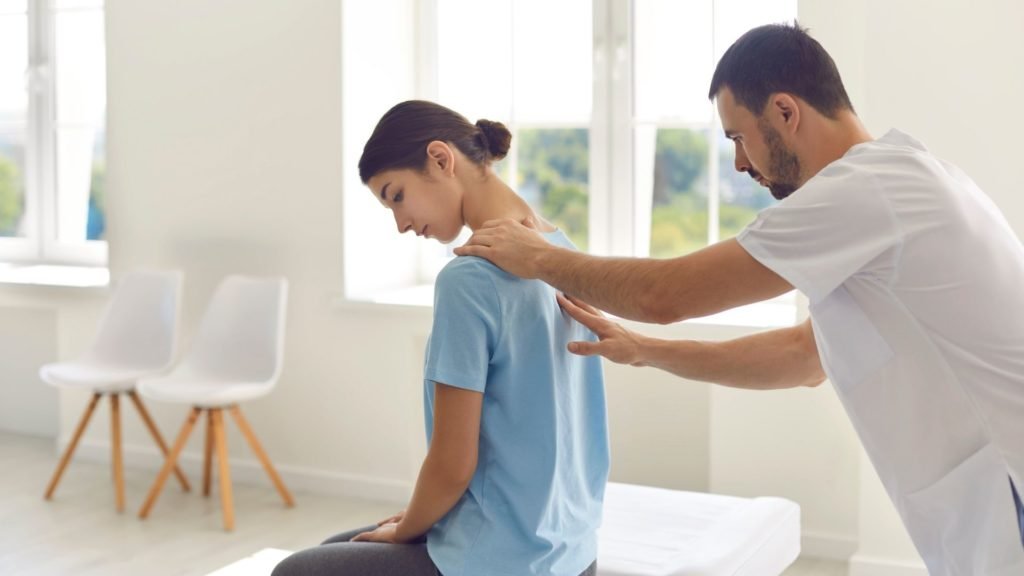Spinal Stenosis is one example of what can lead to chronic lower back and neck pain.
When spinal stenosis occurs, it causes a narrowing of space in the spinal cord, putting pressure on the nerves that run throughout the spine. There are different types of Spinal Stenosis.
These types include:
Lumbar Stenosis– is when the narrowing of the spine occurs in the lower back.
Cervical Stenosis – is when the narrowing of the spine occurs in the neck.
Spinal Stenosis is most common in people older than 50 years of age, but can also occur in younger people. As the person gets older, the chance of developing this condition also gets higher. People with more severe spinal stenosis tend to have problems with bladder, bowel, and sexual functions.
Symptoms of Spinal Stenosis
Because the compression of your nerves happen over time, symptoms may gradually start and progressively become worse.
Symptoms of Spinal Stenosis include:
- low back pain
- neck pain
- numbness or tingling in the hands, arm, foot or leg
- trouble walking or staying balanced
- weakness in foot or leg
There a many reasons why a person develops Spinal Stenosis. Some of these reasons include:
- herniated disks – there are soft cushions that lay between your vertebrae can sometimes dry out as you age, causing the the cushions to slip out and press on your spinal nerves.
- tumors – growths can occur inside the spinal cord.
- spinal injuries – traumas, injuries or car accidents can cause a fracture in the spinal canal, which leads to swelling that puts pressure on the spinal cord and it’s nerves.
Spinal Stenosis Treatments
The treatment for Spinal Stenosis depends on the severity of your symptoms and what is causing the symptoms to occur.
If your symptoms are mild, your doctor may recommend performing some self-care remedies at home. Some of these remedies are:
- heating pad to help increase blood flow and relax the muscles.
- cold pack- reduces inflammation in the area where you’re experiencing pain.
Non-surgical treatments may include:
- anti-inflammatory medications such as ibuprofen (Advil), acetaminophen (Tylenol), naproxen (Aleve).
- alternative medicine therapies – acupuncture, chiropractic treatment, massage therapy.
- steroid injections – help to reduce inflammation in the spine and relieve some of the pain so the area can heal.
- decompression procedure – is eligible for patients with lumbar stenosis. This procedure uses a needle-like instrument to remove a part of the thickened ligament in the back of the spinal column. Doing this helps to increase space and remove a nerve root impingement.
Your doctor should evaluate your pain and will come up with a treatment plan that will be best suited for you and your pain issues. Self-medication can be dangerous especially if you have allergies with certain drugs. To avoid complications, consulting a medical practitioner who specializes in treating Spinal Stenosis is highly recommended.
If you or a family member is experiencing any type of acute or chronic pain like Spinal Stenosis, visit Integrated Spine, Pain & Wellness to learn about different treatment options, tips and home remedies or come see Dr. Goyle and have him give you a thorough evaluation. You don’t have to live with pain.
At ISPW, Dr. Ashu K. Goyle offers a comprehensive approach to treating Chronic Pain by identifying the root cause of the issue instead of just the symptom. He is also an active member of Pain Medicine Fellowship at Cleveland Clinic.
Integrated Spine, Pain & Wellness Scottsdale also accepts insurance health plans offered by insurance providers like Aetna, Humana, Cigna, etc. You can see the full list here.
For more information or queries, please contact ISPW at www.ispwscottsdale.com or call 480-660-8823 7425 E Shea Blvd. Suite 102 Scottsdale, AZ 85260.

